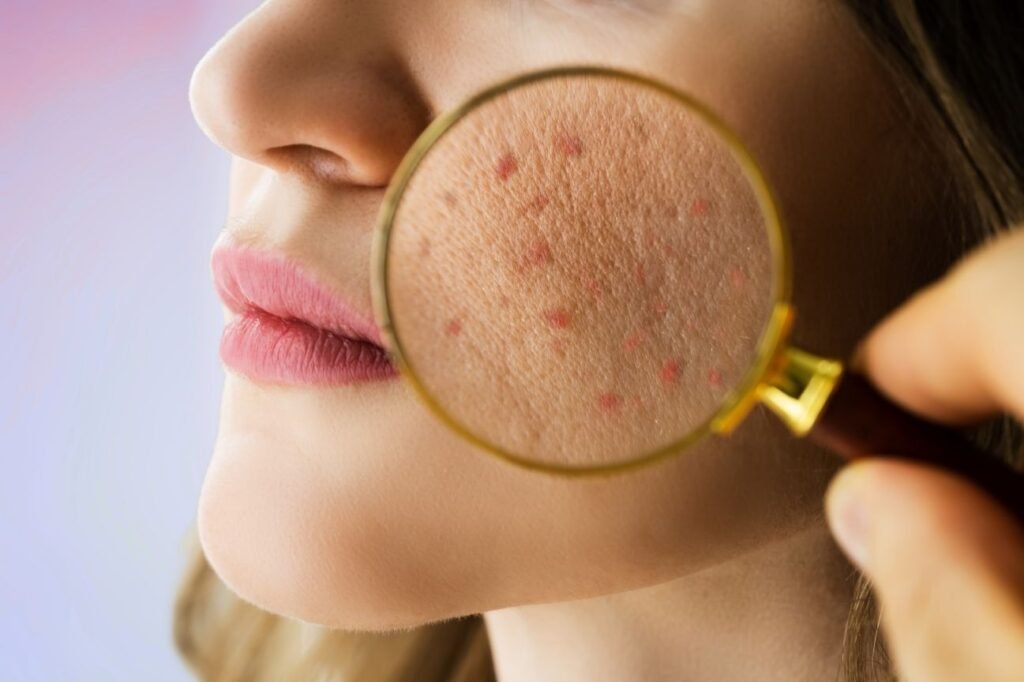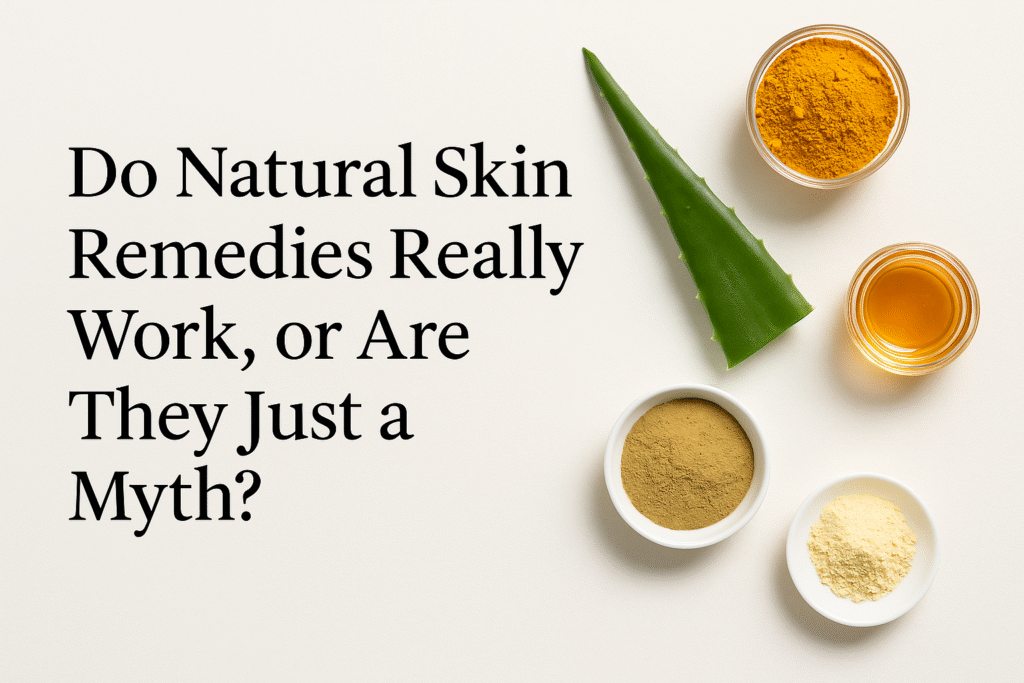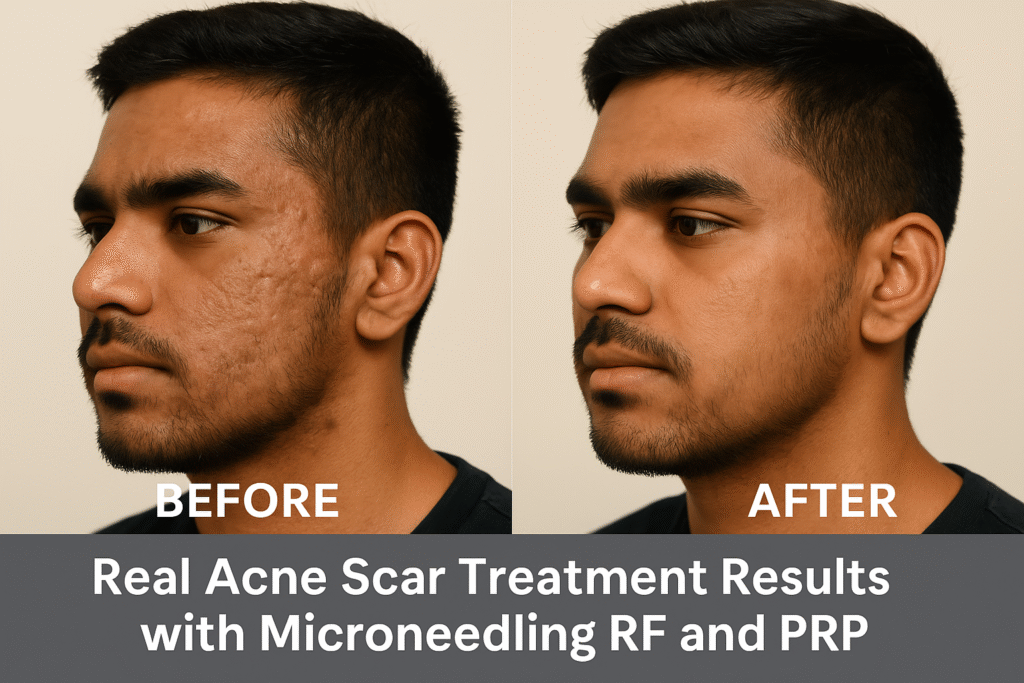Introduction
Think acne is only for teenagers? Think again. Adult acne is an increasingly common skin concern, affecting individuals well into their 20s, 30s, and even 50s. While it often looks similar to teen acne, the root causes and treatment approaches can be quite different. Let’s break down what causes adult acne and how to manage it effectively.
What is Adult Acne?
Adult acne refers to the occurrence or persistence of pimples in adults, especially those over 25. It can appear as blackheads, whiteheads, papules, pustules, or even deep cystic nodules. It often affects the lower face (jawline, chin, neck) and tends to be more inflammatory in nature.
Common Causes of Adult Acne
1. Hormonal Imbalance
Fluctuations in hormones—especially androgens—can stimulate excess sebum (oil) production, leading to clogged pores and acne. Conditions like PCOS (Polycystic Ovary Syndrome) are major contributors in women.
2. Stress
Stress increases cortisol levels, which can trigger oil glands to become overactive, worsening acne.
3. Skincare & Makeup Products (Cosmetic Acne)
Using comedogenic (pore-clogging) products can trap oil and bacteria. Always choose products labeled “non-comedogenic” or “oil-free.”
4. Diet & Gut Health
High glycemic foods, dairy, and processed sugar may contribute to acne. An unhealthy gut microbiome can also affect skin inflammation.
5. Poor Sleep & Lifestyle Habits
Lack of sleep and irregular routines can disrupt skin regeneration and hormone balance.
6. Medications
Some drugs like corticosteroids, lithium, or hormonal therapies can aggravate acne.
Effective Treatment Options for Adult Acne
1. Topical Treatments
- Retinoids (Adapalene, Tretinoin) – unclog pores and boost cell turnover.
- Benzoyl Peroxide – kills acne-causing bacteria.
- Azelaic Acid – anti-inflammatory and safe for sensitive skin.
- Niacinamide – controls oil and soothes inflammation.
2. Oral Medications
- Oral Contraceptives – regulate hormones in women.
- Spironolactone – reduces androgen production.
- Antibiotics (Doxycycline, Minocycline) – used short-term to reduce inflammation.
- Isotretinoin (Accutane) – for severe, treatment-resistant cases.
3. Clinical Procedures
- Chemical Peels – remove dead skin layers and unclog pores.
- Laser & Light Therapy (Blue light, IPL) – reduce bacteria and inflammation.
- Microneedling with RF – helps in acne scar treatment and skin remodeling.
- Hydrafacial & Medi-facials – clean pores and improve hydration without irritation.
Skincare Routine for Acne-Prone Adults
- Cleanser: Gentle gel-based, sulfate-free cleanser twice a day.
- Exfoliation: Use BHAs (like salicylic acid) 2–3 times/week.
- Moisturizer: Oil-free, lightweight, non-comedogenic.
- Sunscreen: Broad-spectrum SPF 30+ (even for oily skin).
- Spot Treatment: Salicylic acid or benzoyl peroxide gel.
Can Adult Acne Be Prevented?
Yes, to an extent. While hormonal causes may be out of your control, you can:
- Manage stress with yoga, meditation, or exercise.
- Avoid junk food, dairy, and sugary drinks.
- Stick to a consistent skincare routine.
- Avoid sleeping with makeup.
- Change pillowcases frequently.
- Keep your phone screen and hands clean to avoid skin contact with bacteria.
When to See a Dermatologist
If acne persists beyond 6–8 weeks despite using OTC treatments, or if it’s leaving scars or causing emotional stress, consult a board-certified dermatologist for personalized care.
FAQs About Adult Acne
Q1: Is adult acne different from teenage acne?
Yes. Adult acne is often deeper, more inflammatory, and linked to hormones or stress rather than just oily skin.
Q2: Can I use retinol if I have adult acne?
Yes, retinoids are effective. Start slowly (2–3 times/week) and increase frequency as your skin adapts.
Q3: Are natural remedies effective for adult acne?
Some may help mildly (like tea tree oil), but results are inconsistent. Medical-grade treatments offer better results.
Q4: Will acne go away on its own?
Not always. Many adults require treatment to control or resolve acne and prevent scarring.
Q5: Can facials help with adult acne?
Yes, but only medical or acne-specific facials under a dermatologist’s supervision.
Conclusion
Adult acne is a real, persistent issue—but it’s absolutely treatable. With the right skincare, clinical treatments, and lifestyle changes, you can manage acne and regain clear, healthy skin. Don’t self-medicate—consult a dermatologist for long-term relief.



